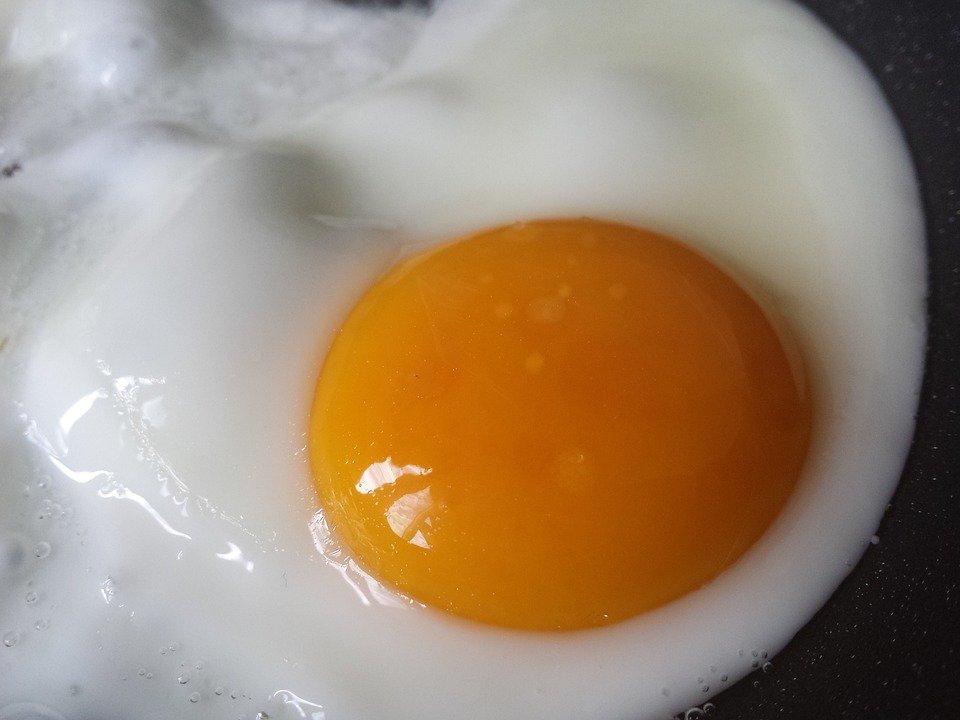Eggs provide nutrition for both humans and dogs. They make tasty treats or a satisfying breakfast, whether boiled, poached, scrambled, or fried. A cooked egg or yolk can benefit your dog, unless they have health issues like pancreatitis or diabetes. However, there are important considerations before feeding your dog eggs.
Can Dog Eat Egg?
Overall, cooked eggs are generally safe for your dog and offer health benefits. Eggs are rich in protein and essential nutrients, serving as a valuable addition to your dog’s meals. Adding cooked eggs to your dog’s diet, alongside a balanced meal plan, can enhance their nutrition. Moreover, eggs can aid in digestion and soothe an upset stomach in dogs.
Ensuring eggs are sourced from reputable sources is crucial for your dog’s health. Eggs from free-range farm hens fed a nutritious diet are preferable. Your veterinarian can advise you on the appropriate quantity of eggs for your furry companion. However, if your dog has specific medical conditions, it’s essential to consult your vet to prevent any potential issues arising from adding eggs to their diet. Even with healthy dogs, it’s advisable to introduce eggs gradually to monitor for any signs of allergies or sensitivities.

Can Puppes Eat Egg?
Puppies can consume cooked eggs occasionally, ensuring they are cooked thoroughly. It’s essential to follow a diet primarily consisting of puppy food, with human snacks limited to no more than 10% of their diet. Veterinarians emphasize the importance of avoiding harmful human foods for puppies, such as grapes and xylitol, commonly found in sugar-free treats. Raw eggs should not be included in a puppy’s diet.
Are Eggs Good for Dogs?
Eggs provide vital nutrients that contribute to your dog’s overall health:
- Vitamin A strengthens immunity, promotes bone health, supports vision, and enhances reproduction.
- Thiamine regulates energy levels and improves the function of the nervous system.
- Riboflavin and vitamin B12 enhance enzyme function.
- Folic acid/folate aids in red blood cell production, supports the nervous system, and potentially prevents certain birth defects in puppies.
- Selenium facilitates metabolism, assists in thyroid function, and may have preventative and therapeutic effects against cancer.
- Omega-3 fatty acids promote skin, heart, and kidney health, and can alleviate inflammation associated with conditions like osteoarthritis.
- Iron is essential for energy production, as well as transporting and storing oxygen in the body.
What Type of Eggs Can Dog Eat?
Dogs can enjoy various types of eggs, as noted by Vets:
- Boiled: Soft or hard-boiled eggs are safe for dogs.
- Scrambled: These are also safe, but avoid adding salt, butter, or milk during cooking, as excessive salt can dehydrate dogs, and dairy products may upset their stomachs due to difficulty in digestion.
- Poached: Dogs can safely consume poached eggs.
- Baked: Baked eggs are fine for dogs, but be cautious of added ingredients like dairy products and salt. The Vet advises against feeding dogs fried eggs, stating, While dogs need fat in their diet, excessive fat can be detrimental.

Can Dog Eats Raw Eggs?
While some people opt for raw eggs as part of a “natural” diet for their dogs, most veterinarians advise against it and recommend cooking the eggs beforehand due to potential risks associated with raw eggs.
One significant risk is bacterial infections. Raw or undercooked eggs may harbor bacteria such as salmonella, leading to an infection known as salmonellosis. Symptoms of salmonellosis include fever, vomiting, diarrhea, and lethargy.
Another concern is biotin deficiency. Egg whites contain avidin, a protein that inhibits the absorption of biotin when consumed raw. Cooking eggs deactivates avidin, allowing for proper biotin absorption. Biotin is essential for maintaining healthy skin, supporting metabolism, promoting cell regrowth, and facilitating proper digestion.
Feeding your dog raw eggs carries more risks than benefits, despite their nutritional value. Raw eggs can induce vomiting or diarrhea in dogs. In short, it’s advisable to avoid feeding them raw eggs altogether.

Can A Dog be Allargic to Eggs?
Dogs, like humans, can develop allergies or sensitivities to certain foods, including eggs. Certain breeds, such as West Highland White Terriers, Labrador Retrievers, and Cocker Spaniels, are more prone to food allergies.
The Vet highlights common signs of an allergic reaction to eggs, which may include:
- Vomiting
- Diarrhea
- Wheezing
- Itchy skin
- Swelling
If your dog exhibits any of these symptoms after consuming eggs, it’s crucial to promptly contact your veterinarian for guidance and assistance.
Can Dog Eat Eggshells?
Although eggshells do contain essential minerals vital for dogs’ metabolism, immune function, growth, and development, feeding a whole egg to your dog isn’t advisable. The nutrients found in eggshells are also present in both the egg whites and yolks.
The exception is calcium, which is abundant in eggshells. However, if your dog requires more calcium, there are safer alternatives to incorporate into their diet. Moreover, apart from the risk of salmonella contamination, eggshells can pose a hazard if not properly crushed, potentially causing lacerations or obstructions in your dog’s throat.

How Many Eggs Should You Feed Your Dogs?
The recommended daily allowance for your dog is one egg per day.
To introduce eggs into your dog’s diet, incorporate a cooked egg into their meals, ensuring it doesn’t cause digestive issues like vomiting or diarrhea. If there are no adverse reactions, you can gradually increase the frequency of egg consumption.
However, eggs should not serve as the sole source of protein for your dog. Excessive egg consumption and protein intake can lead to weight gain due to the surplus of calories. Treat eggs as occasional treats for your dog rather than a primary protein source. A typical large egg contains around 60 calories, 6 grams of protein, and 4 milligrams of fat. Consult your veterinarian to determine the appropriate quantity of eggs for your dog, considering factors such as size, age, activity level, and existing health conditions.
After recognizing the positive impact of cooked eggs on your dog’s diet, you might contemplate their daily inclusion. However, it’s advisable to limit egg consumption to a few days a week.
Daily intake may be excessive, potentially leading to weight gain due to the additional protein and calories from eggs. Consulting your veterinarian regarding the appropriate amount of eggs to incorporate into your dog’s diet is crucial for maintaining their health and weight.
How to Cook and Serve Eggs for Dogs?
When preparing eggs for your dog, it’s crucial to avoid adding salt, garlic, and onion, all of which can be toxic to canines.
According to The Vets you can enhance your dog’s eggs by incorporating:
- Vegetables like spinach, broccoli, kale, or sweet potato
- Protein sources such as chicken, turkey, or beef
- A small portion of low-fat cheese
- A dash of coconut oil to provide healthy fats and improve your dog’s skin and coat health
It’s essential to offer these ingredients in moderation, based on your dog’s individual dietary requirements.
For some culinary inspiration, consider trying out these delicious recipes! Here’s a simple yet delightful recipe for dog-friendly mini turkey and broccoli quiches:
Ingredients:
- 100 grams turkey, diced
- 100 grams chopped broccoli
- 43 grams grated low-fat cheese
- 120 milliliters milk
- 4 large eggs
Instructions:
- Preheat the oven to 350°F (180°C).
- Lightly grease a cupcake tray.
- Place turkey, broccoli, and cheese into each cupcake hole.
- In a bowl, whisk together milk and eggs.
- Evenly pour the egg and milk mixture into each cupcake hole.
- Bake in the preheated oven for about 20 minutes until lightly golden.
- Allow the tray to cool briefly before transferring the quiches from the cupcake trays to a wire rack to cool completely before serving.
These mini quiches are perfectly sized and can be conveniently frozen for later enjoyment. Remember, quiches intended for human consumption often contain ingredients like garlic and onion, which are harmful to dogs. However, crafting your own dog-friendly quiche using safe ingredients can be a delightful and nutritious treat for your furry friend!



